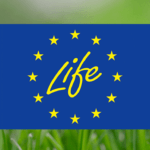The European Commission adopted on 12 May amendments to its state aid rules to provide public access to environmental justice in relation to EU state aid decisions. To this end, the Commission has revised the rules allowing non-governmental organisations (NGOs) to request the Commission to review certain state aid decisions to determine whether they infringe EU environmental law. The new review mechanism follows the findings of the Aarhus Convention Compliance Committee in case ACCC/C/2015/128.
The Commission has also taken the opportunity of this review to update other provisions of the Implementing Regulation (EC) No 794/2004 on state aid and the Code of Best Practices on State Aid (CBP), in line with established Commission practice and the case law of the Court of Justice of the EU.
The new review mechanism
The review includes the following conditions, and in particular as specified in the PBC:
- Any NGO that meets a number of criteria may submit a request for review. These criteria relate to the independence of the NGO, its non-profit status and its activity in relation to the application, as well as its proven experience in the field of environment.
- The acts which may be subject to requests for review are final State aid decisions closing the formal investigation procedure initiated under Article 108(2) of the Treaty on the Functioning of the European Union (“TFEU”) because it has been concluded that an aid is compatible with the internal market (“positive decision”) or may be compatible under certain conditions (“conditional decision”). Reviews can be requested on all compatibility grounds under the TFEU to authorise State aid, except for final decisions taken under Article 107(2) of the TFEU (“conditional decision”).2 TFEU (‘aid having a social character granted to individual consumers’ and ‘aid to make good the damage caused by natural disasters or exceptional occurrences’) and Article 107(3)(b) TFEU as regards aid ‘to remedy a serious disturbance in the economy of a Member State’.
- Eligible NGOs would have to demonstrate that the aided activity or any aspects of State aid approved by a Commission decision which are inseparable from the objective of the aid (“inextricably linked”) infringe a specific rule or rules of EU environmental law.
- The application must be submitted on a standard form within eight weeks of the publication of the State aid decision in the Official Journal. The Commission will respond within sixteen weeks of the expiry of the eight-week deadline. This period may be extended to 22 weeks in justified cases. The Commission will publish the applications and the replies on a dedicated website.
- Applicants may challenge the Commission’s reply before the Court of Justice of the EU.
The amendment to the Implementing Regulation requires Member States to confirm in the State aid notification form that neither the aided activity nor the aid measure infringes EU environmental law.
Entry into force and application
As from two months after the publication of the amendments to the Implementing Regulation in the Official Journal, eligible NGOs may submit requests for review of final state aid decisions authorising aid notified by Member States.
Applications concerning final decisions authorising non-notified aid may also be submitted in cases where the decision to initiate the procedure under Article 108(2) of the Treaty has been taken after the publication of the amendments to the Implementing Regulation in the Official Journal.
Next steps
The Commission will publish guidance on its website in the fourth quarter of 2025 on the concept of the “inextricable link”, which is a necessary condition for establishing an infringement of EU environmental law in a state aid procedure.
Background
The adoption of the amendments to the Implementing Regulation and the revised PBC follows the 2021 conclusions of the Aarhus Convention Compliance Committee, which concluded that the EU is in breach of the Aarhus Convention by not allowing citizens to challenge state aid decisions taken under Article 108(2) TFEU if they consider such decisions to be in breach of EU environmental law.
On 17 May 2023, the Commission adopted a Communication setting out the different possibilities for following the conclusions of the Aarhus Convention Compliance Committee in order to create a new procedure.
The Commission launched a call for data on 30 May 2024, followed by a specific consultation from 1 July 2024 to 6 September 2024. Between 7 February and 21 March 2025, the Commission carried out a stakeholder consultation, through which it sought the views of Member States, public authorities, citizens, businesses, business associations and other organisations (including environmental NGOs), lawyers and academics on the draft amendments to the Implementing Regulation and the PIC.
More information: European Commission







Leave a Reply